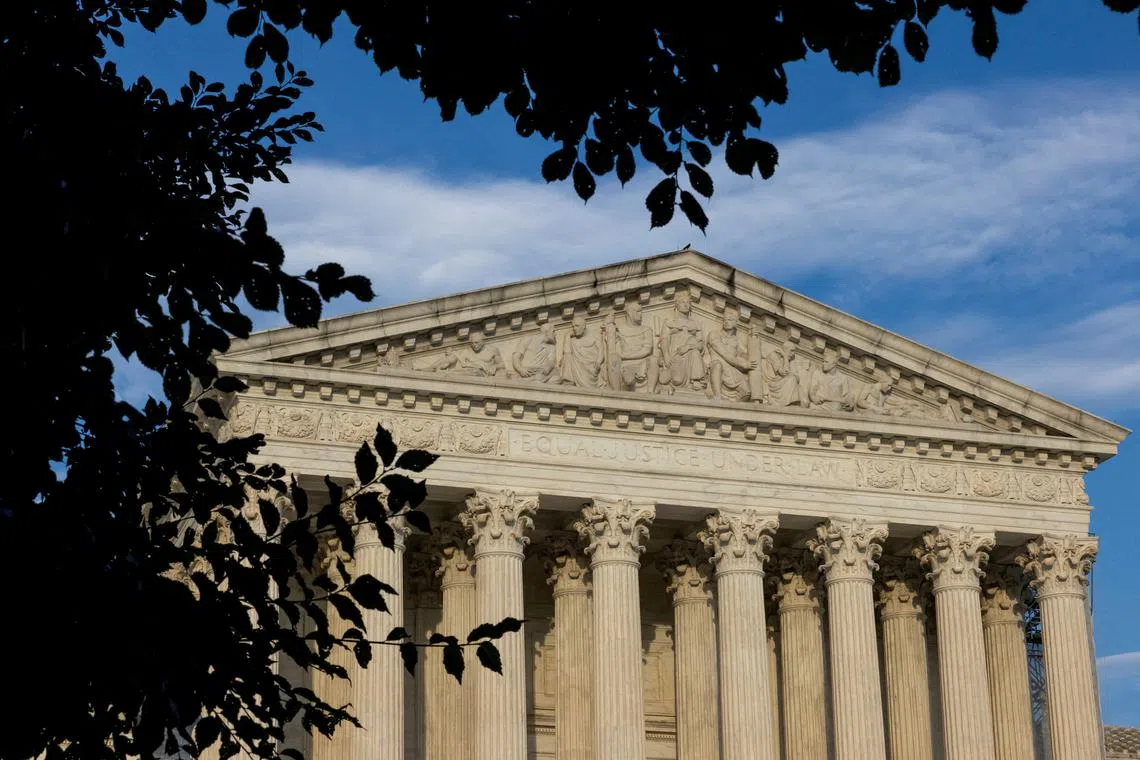US Supreme Court pauses judge’s order that Trump spend foreign aid
Sign up now: Get ST's newsletters delivered to your inbox

The funds were intended for foreign aid, UN peacekeeping operations and democracy-promotion efforts overseas.
PHOTO: REUTERS
Follow topic:
WASHINGTON - The US Supreme Court paused on Sept 9 a judge’s order that required Donald Trump’s administration to promptly take steps to spend billions in foreign aid that the Republican president has sought to claw back.
The court’s action, called an administrative stay, gave the justices additional time to consider the administration’s formal request to let it withhold some US$4 billion ($5.13 billion) authorised by Congress ahead of a Sept 30 deadline.
The stay was issued by Chief Justice John Roberts, who handles emergency filings arising in Washington. Mr Roberts asked the aid groups that sued the administration to file a response to the administration’s request by Sept 12.
The money at issue in the case was intended by Congress for foreign aid, United Nations peacekeeping operations and democracy-promotion efforts overseas.
The administration said in court papers that the US$4 billion of disputed foreign aid funding is “contrary to US foreign policy”, reflecting Mr Trump’s effort to scale back US assistance abroad as part of his “America First” agenda.
Mr Trump has also largely dismantled the US Agency for International Development
Congress budgeted billions of dollars in foreign aid in 2024, about US$11 billion of which must be spent or obligated ahead of a deadline of Sept 30 – the last day of the US government’s current fiscal year – lest it expire.
After being sued by aid groups that expected to compete for the funding, the administration said in August that it intended to spend US$6.5 billion of the disputed funds.
Mr Trump also sought to block US$4 billion in the funding through an unusual step called a “pocket rescission” that bypasses Congress
Judge Amir Ali of US District Court in Washington ruled on Sept 3 that the administration cannot simply choose to withhold the money, and that it must comply with appropriations laws unless Congress changes them.
Justice Department lawyers in a filing on Sept 8 to the Supreme Court said the judge’s injunction “raises a grave and urgent threat to the separation of powers”.
Under the US Constitution, the government’s executive, legislative and judicial branches are assigned different powers.
“It would be self-defeating and senseless for the executive branch to obligate the very funds that it is asking Congress to rescind,” lawyers for the Justice Department wrote.
Mr Trump’s budget director Russell Vought has argued that the president can withhold funds for 45 days after requesting a rescission, which would run out the clock until the end of the fiscal year. The White House said the tactic was last used in 1977.
Ms Lauren Bateman, a lawyer for a group of plaintiffs, responding to the administration’s filing on Sept 8, said that the administration had asked the Supreme Court “to defend the illegal tactic of a ‘pocket rescission’”.
“The administration is effectively asking the Supreme Court to bless its attempt to unlawfully accumulate power,” Ms Bateman said.
The US Court of Appeals for the District of Columbia Circuit in a 2-1 ruling on Sept 6 declined to halt Judge Ali’s order, prompting the administration’s request to the Supreme Court.
The administration has repeatedly asked the justices this year to intervene to allow implementation of Trump policies impeded by lower courts.
The Supreme Court, which has a 6-3 conservative majority, has sided with the administration in almost every case that it has been called upon to review since Mr Trump returned to the presidency in January.
In an earlier iteration of the foreign aid funding case, the court in a 5-4 vote in March declined to let the administration withhold payment of some US$2 billion to aid organisations for work they already performed for the government. REUTERS

